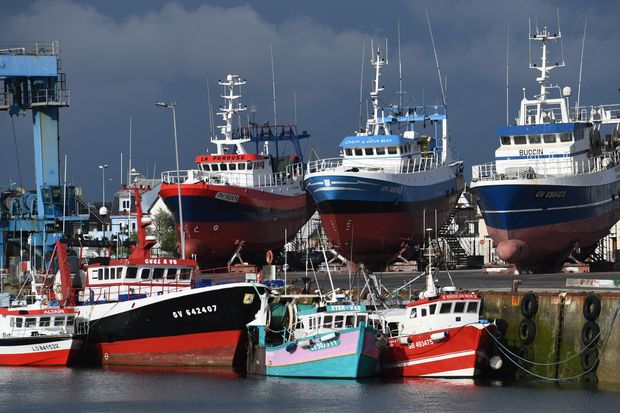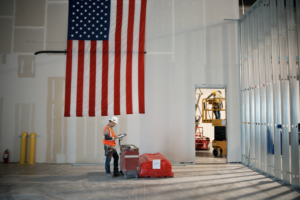
Fishing boats moored at the port of Le Guilvinec, western France.
AFP via Getty Images
Negotiations between the European Union and the U.K. will resume in London on Thursday after a few tense days. U.K. Prime Minister Boris Johnson had threatened to end the talks because EU leaders took a hard line last week, demanding that London make “the necessary moves to make an agreement possible.”
- A speech by EU negotiator Michel Barnier on Wednesday, calling on “both sides” to work “constructively” and compromise, was seized by the U.K. government as a sign of the gesture London wanted to see from the European side.
- Barnier then had a one-hour phone conversation with his U.K. counterpart David Frost, and the two men agreed that negotiations will now take an intensive form with daily meetings, weekend included. The aim is to strike a deal in time for the parliaments to ratify it before Dec. 31.
- No visible progress has been registered so far on the three contentious issues that have prevented a deal in the past months: access to British waters for European fishermen; the rules governing state aid in the future; and how to manage differences and legal disputes once the deal is implemented.
The outlook: The U.K. climbdown doesn’t come as a surprise, and Barnier did the minimum that was expected to allow London to hail his statement as an olive branch. As the U.K. is struggling with a strong second spike of the COVID-19 pandemic, a ‘no-deal’ Brexit looks increasingly like an economic shock that must — and can — be prevented.
This can be achieved if the EU — notably France — accepts to move on fisheries, and the U.K. concedes it has to accept binding rules on state aid to industries. Negotiators seem to have reached the point where they think they can agree. But it will be up to governments to sanction the deal — or not.






